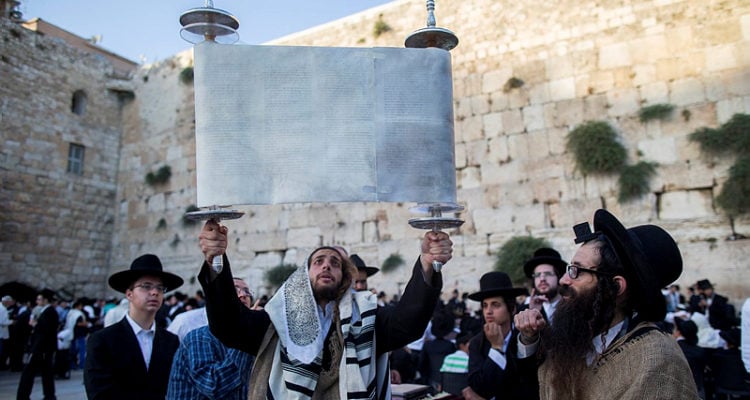The annual three-week mourning period concludes with another fast on the ninth day of the month of Av, when the destruction itself is mourned.
By World Israel News Staff
Jews were marking the Fast of the 17th of Tammuz on Sunday, associated primarily with the period immediately before the destruction of the first and second Temples in Jerusalem, but commemorating other tragic moments in Jewish history as well.
During the month of Tammuz, the walls of the ancient city of Jerusalem were breached, leading to the destruction of the Temple a number of weeks later, first in the year 586 B.C.E by Nebuchadnezzar and his Babylonian forces and again, after the Temple had been rebuilt, in 70 CE by the Romans.
In fact, the 17th of Tammuz is the beginning of a three-week mourning period, commemorating the final stage of those two assaults against the Jews leading to the destruction of their holiest shrine.
The period concludes with another fast on the ninth day of the month of Av, when the destruction itself is mourned.
Technically speaking, Sunday is the 18th of Tammuz, but the fast was deferred by a day because of the Jewish Sabbath.
According to the Mishnah, the first major work of rabbinic literature, the 17th of Tammuz also marks the shattering by Moses of the Tablets upon descending from Mount Sinai and seeing the Jews worshiping the Golden Calf, as recorded in the Bible. Other ominous moments associated with this day are a halt to the offering of the daily sacrifice in the Temple, the placement of an idol in the Holy Sanctuary, and the public burning of a Torah scroll.
The Temple Mount is Judaism’s holiest shrine, but access is restricted and Jewish prayer is barred by the Waqf Islamic Trust. The Western Wall, an outer remnant, has become the most popular prayer site for Jews around the world.





